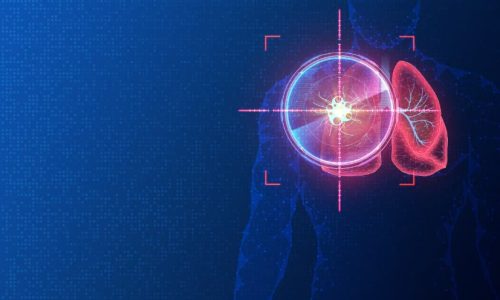
Understanding the Latest Lung Cancer Drugs
The world of cancer treatment is rapidly evolving. New therapies are being discovered, and existing ones have improved, resulting in better patient outcomes. Regional Cancer
HIPAA Alert: Potential Data Breach Learn More
Questions on Oncology, Hematology and/or Infusion Clinical Services due to COVID-19 Crisis – CALL 833-698-1623
Important Information for Our Patients Regarding the Coronavirus.
RCCA Providing Area Cancer Patients with Access to Care During Coronavirus Outbreak
RCCA Offering Patients Virtual Visits During Coronavirus Pandemic
Surgery, chemotherapy, and radiation long have been mainstays of cancer treatment, but they aren’t the only options for people with cancer. Targeted therapy is an innovative treatment that is effective against certain cancers with molecular targets, including many cases of lung cancer. Regional Cancer Care Associates (RCCA) provides patients in New Jersey, Connecticut, Maryland, and the Washington, D.C., area with a wide range of treatments for cancer and benign (non-cancerous blood disorders. In this article, RCCA provides insight into how targeted therapy for lung cancer works.

Targeted therapy is a type of drug therapy that acts specifically against cancer cells or the biological processes that support their development and growth. This approach differs from standard chemotherapy, which can affect both healthy and cancerous cells. Targeted therapy mostly leaves healthy cells alone. Targeted therapy has achieved promising results in treating many types of solid tumors, including in breast cancer, colorectal cancer, skin cancer, and lung cancer, as well as in managing several cancers of the blood and blood-forming tissues. While targeted therapy is an important treatment option, it most often is used in conjunction with – rather than instead of — other treatment methods, such as chemotherapy, surgery, radiation, and immunotherapy.
Cancer cells have genetic mutations that make them different from normal cells. Targeted therapy medicines aim at these mutated cells, preventing the cancer from growing and spreading. Because many genes can contribute to the development of a certain type of cancer, such as lung cancer, not every patient with that disease will have a genetic mutation that can be targeted by currently available therapies. As a result, while one person with lung cancer may be a good candidate for targeted therapy, another person with lung cancer may not. However, scientists are working to identify the various genetic mutations that contribute to the development of different kinds of cancer and are striving to formulate therapies that will be effective against cancer cells with those mutations. Other forms of targeted therapy, meanwhile, work to interfere with or prevent processes that contribute to the growth of a cancer, such as by blocking the production or syntheses of androgens, the male sex hormones that can fuel the growth of prostate cancer.
When determining the best treatment approach for a patient with cancer, physicians will consider whether genetic testing of the tumor or the patient’s blood is warranted to identify genetic mutations that may make that patient a good candidate for a targeted therapy. Different targeted drugs have varying mechanisms of action, including:
There are many types of targeted drugs, and they work in different ways. That means the treatment process and side effects for each can vary. Targeted therapy drugs can be either small-molecule drugs or large-molecule drugs. Small-molecule drugs are small enough to enter cancer cells and acts against a specific substance or biological process inside the cell. Large-molecule drugs are generally too big to fit into cells, but they can still attack targets on the surfaces of the cells. Types of targeted drugs include:
Excluding skin cancers, lung cancer is the second most common type of cancer affecting both men and women in the United States. It also is responsible for more deaths than any other type of cancer. The disease begins when abnormal lung cells grow out of control and form a cancerous tumor. Around 87% of lung cancer cases are attributed to smoking tobacco, but people who have never smoked can still get lung cancer. There are two main types of lung cancer:
While a given patient’s treatment options for lung cancer will depend on the stage and type of cancer, the person’s overall health, and other factors, the treatment plan often will include both long-established treatments such as radiation and chemotherapy and cutting-edge treatments such as targeted and immunotherapy.
Targeted therapy is often used for treating advanced lung cancers, particularly advanced non-small cell lung cancer (NSCLC). Around 30% of lung cancer patients have molecular targets that may respond to targeted therapy. Targeted therapy drugs can act against mutations including:
Targeted therapy treatment is sometimes referred to as precision medicine, as it is personalized to each patient based on information about that person’s genes, cell proteins, and mutations.
Targeted therapy often has fewer side effects than treatments such as chemotherapy and radiation. However, every patient responds differently to treatment, and some patients may have few or no side effects while others have more. The incidence and severity of side effects will also depend in part on the type of drug administered and its dosage. Possible side effects of targeted therapy treatment include:
Generally, these side effects will go away on their own or with simple treatment, but some can be long-lasting or even permanent. Patients should contact their healthcare team about any side effects concerns.
Currently, targeted therapy is suitable only for non-small cell lung cancer. However, scientists are evaluating the effectiveness and safety of many targeted therapies as treatments for SCLC.
Patients with non-small cell lung cancer with specific gene mutations may be eligible for targeted therapy treatment. Specialists often recommend targeted therapy when they cannot remove a tumor with surgery or when the disease has progressed despite treatment with other therapies.
Patients receiving targeted therapy will have regular follow-up testing with their medical team, including physical exams, blood tests, and imaging scans, to see how the cancer is responding to the treatment.
As with any cancer therapy, there can be cases in which there is not a sufficient initial response to treatment. In other cases, a targeted therapy works well initially but cancer cells then become resistant to the targeted therapy drug, causing the medication to lose its effectiveness. However, research has shown that targeting different components of cancer cells with different drugs can work better than using just one therapy.
Targeted therapy drugs often come in pill form, taken orally on a daily or weekly schedule. For patients with non-small cell lung cancer, targeted therapy drugs usually come as a tablet, which is taken by mouth every day at the same time. Other targeted therapy drugs are administered intravenously.
Patients with lung cancer deserve to receive high-quality, comprehensive, and compassionate care without having to travel long distances. Regional Cancer Care Associates (RCCA) is dedicated to providing world-class cancer care close to home, with more than 20 community-based locations throughout New Jersey, Connecticut, Maryland, and the Washington, D.C., area. The team of 90+ cancer and blood disorder specialists provides personalized treatment plans for all patients, including those with lung cancer. Additional benefits that patients receive at RCCA include:
These are just some of the reasons why patients with lung cancer and other cancers come to Regional Cancer Care Associates for their cancer treatment. For more information, read through RCCA’s frequently asked questions.
Patients with lung cancer who are looking for comprehensive cancer care and innovative treatment options like targeted therapy can trust Regional Cancer Care Associates. RCCA oncologists, nurses, pharmacists, and other healthcare professionals work together to provide customized treatment plans for patients in New Jersey, Connecticut, Maryland, and the Washington, D.C., area. To learn more about targeted therapy for lung cancer at RCCA, request an appointment today.
For more information or to schedule an appointment,
call 844-346-7222. You can also schedule an appointment by calling the RCCA location nearest you.

The world of cancer treatment is rapidly evolving. New therapies are being discovered, and existing ones have improved, resulting in better patient outcomes. Regional Cancer

The imaging tests were negative, but Elizabeth Whalen knew something was wrong. Having survived pancreatic cancer and breast cancer, the Cape May Court House resident was

When it comes to cancer, early diagnosis is a person’s best defense. Cancer cannot always be prevented, but early detection offers the best opportunity for

Regional Cancer Care Associates is one of fewer than 200 medical practices in the country selected to participate in the Oncology Care Model (OCM); a recent Medicare initiative aimed at improving care coordination and access to and quality of care for Medicare beneficiaries undergoing chemotherapy treatment.